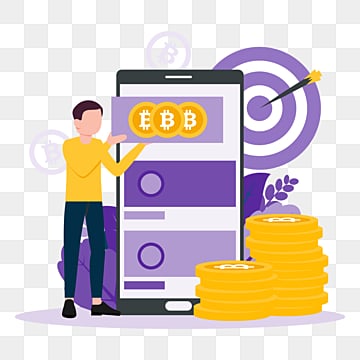What Are the Key Features to Include in a Crypto Wallet App?
Those who wish to handle their digital assets in the often changing realm of cryptocurrencies depend on a safe and trustworthy crypto wallet app. Knowing the main characteristics of a crypto wallet software will help you whether your goal is to offer a service for a larger audience or create a wallet for personal usage. This article will stress the key elements to include in a build crypto wallet app to guarantee it satisfies consumer needs and also conforms with industry standards.
Introduction to Crypto Wallet App Development
A crypto wallet app is a software program designed to let users transmit, store, and access cryptocurrencies including Bitcoin, Ethereum, and other altcoins. Along with other tools like transaction history, safe backups, and blockchain-based application integration, it offers a safe place for users to handle their assets.
Including elements that not only improve security and user experience but also provide scalability and adaptability is essential in the competitive terrain of crypto wallet app development. These qualities are greatly shaped by blockchain app development services, which give developers the tools and technologies required to build strong wallets able to handle a broad spectrum of crypto transactions.
Key Features to Include in a Crypto Wallet App
Certain elements of a crypto wallet app are non-negotiable to guarantee it satisfies security, usability, and functionality criteria. Every crypto wallet app ought to have these main characteristics below:
1. Private Key Management and Security
Any crypto wallet is fundamentally based on security. Protection of users’ funds depends on private key management. The private key is the cryptographic key enabling users to access and manage their bitcoin. First and most importantly is making sure private keys are never revealed and are safely kept. To safely save private keys inside the app, wallets should employ encryption techniques such as Advanced Encryption Standard, or AES.
Apart from encryption, multi-factor authentication (MFA) is absolutely essential to guard consumers’ accounts from illegal access. Biometric authentication—such as fingerprint or facial recognition—can help those looking for further levels of security better guard user accounts.
2. Cross-Platform Compatibility
iOS, Android, and web browsers are among the several platforms on which a crypto wallet app should be available. Cross-platform compatibility guarantees that users of any device can control their assets. This function improves user experience generally by giving easy access to wallets from different devices, so enabling more practical management of crypto assets.
Blockchain app creation services are increasingly relied upon by developers to produce wallets with cross-platform capability, therefore ensuring the app is compatible with all main operating systems and web browsers.
3. Multi-Currency Support
As cryptocurrencies continue to grow in popularity, supporting multiple currencies is essential for crypto wallet apps. Users may hold various types of digital assets, and a wallet that supports a wide range of cryptocurrencies provides greater flexibility. Wallets should support not only well-known coins like Bitcoin and Ethereum but also a diverse selection of altcoins, including those based on ERC-20 and BEP-20 tokens.
Multi-currency support also helps users manage all their crypto holdings within a single app, saving them the hassle of using multiple wallets for different coins.
4. Transaction History and Analytics
Users that wish to monitor their crypto activity must have a feature showing a comprehensive transaction history. Transaction IDs, values, dates, and statuses of every transaction ought to be part of this function. Easy access to this data guarantees openness and enables consumers to track their losses, income, or expenses.
Analytics solutions can also give consumers insights into their wallet activities by including graphs and charts displaying portfolio development and expenditure trends. These tools enable consumers to effectively manage their assets and make wise judgments on their bitcoin concentration.
5. Backup and Recovery Options
Any crypto wallet app must have a backup and recovery system as a basic need. A loss of the private key results in irreversible loss of assets since the only means to access a user’s money is the private key. Users should be able to build safe backups of their wallet data, including seed phrases or recovery phrases, to stop this.
The recovery process should be straightforward and safe so that consumers may get back access to their money even in case their gadget is lost or broken. Hardware wallet integration or encrypted cloud backups help to improve the recovery process even more.
6. User-Friendly Interface
The success of a crypto wallet app depends critically on a clear, simple, navigable interface. The design should let both new and experienced users effectively and without ambiguity control their assets. Wallet balance, transaction buttons, and settings—all of which are basic—should be easily reachable with straightforward choices for bitcoin transfers and receipt.
7. Peer-to-Peer (P2P) Payment Integration
By including P2P payment features inside the crypto wallet, users may send and receive cryptocurrencies straight to and from other users, therefore avoiding depending on centralized exchanges. Users in areas with limited access to conventional banking facilities will especially benefit from this function. The usability of the wallet can be completely changed by the capacity to trade cryptocurrencies with friends or relatives, or even conduct business transactions with other users directly.
8. Decentralized Exchange (DEX) Integration
Users of decentralized exchanges (DEXs) can trade cryptocurrencies free from depending on outside middlemen. Including DEX integration within a crypto wallet app allows users to swap digital assets straight in the wallet, therefore saving money from being transferred to an outside exchange.
This function is also useful for anyone trying to simplify their crypto transactions since users will be free to participate in trades from inside the app itself, therefore improving the liquidity of the wallet.
9. Real-Time Cryptocurrency Price Tracker
A real-time price tracker is one of the main things consumers of a crypto wallet search for most of the time. Prices for cryptocurrencies can be erratic, hence consumers wish to remain current with the most recent market developments. Real-time price data for many cryptocurrencies can be obtained from a price tracker, which may also be connected with news sites offering market analysis and updates.
Including price alerts depending on user-defined thresholds would also help consumers remain updated when a cryptocurrency hits their intended value, therefore improving their user experience.
10. Staking and Earning Rewards
Giving users choices for staking and wallet reward earning can appeal to those who want to maximize their crypto holdings. Users of staking can lock their bitcoin on a blockchain network and get extra coins as payback. Including staking choices in the app helps users to keep total control of their assets while passively earning from their holdings.
Including alternative reward schemes, such as interest-bearing wallets, will also help the app appeal more to consumers trying to expand their portfolio gradually.
Final Thoughts on Crypto Wallet App Development
Developing a secure, user-friendly, and feature-rich crypto wallet app requires careful consideration of the needs and expectations of the users. By focusing on the key features mentioned above, developers can create an app that meets industry standards and delivers a seamless experience for managing digital assets. Incorporating robust security measures, cross-platform compatibility, and additional features like transaction history and staking can set your wallet apart in the competitive market.
As the demand for digital currencies continues to grow, offering a crypto wallet app with advanced functionality will be essential for staying ahead of the competition. Partnering with experienced blockchain app development services can help ensure that your app is built on a solid technological foundation, making it a trustworthy and reliable choice for crypto users.














104 comments